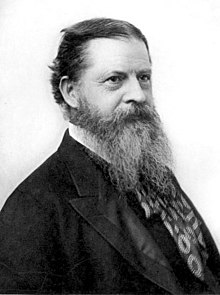
Objective idealism is a philosophical theory that affirms the ideal and spiritual nature of the world and conceives of the idea of which the world is made as the objective and rational form in reality rather than as subjective content of the mind or mental representation.[1][2] Objective idealism thus differs both from materialism, which holds that the external world is independent of cognizing minds and that mental processes and ideas are by-products of physical events, and from subjective idealism, which conceives of reality as totally dependent on the consciousness of the subject and therefore relative to the subject itself.
Objective idealism starts with Plato’s theory of forms, which maintains that objectively existing but non-material "ideas" give form to reality, thus shaping its basic building blocks.[3]
Objective idealism has also been defined[by whom?] as a form of metaphysical idealism that accepts Naïve realism (the view that empirical objects exist objectively) but rejects epiphenomenalist materialism (according to which the mind and spiritual values have emerged due to material causes), as opposed to subjective idealism, which denies that material objects exist independently of human perception and thus stands opposed to both realism and naturalism.[citation needed]
- ^ "idealismo nell'Enciclopedia Treccani". www.treccani.it (in Italian). Retrieved 2023-05-09.
- ^ "Michael Oakeshott | British political theorist | Britannica". www.britannica.com. Retrieved 2023-05-09.
- ^ Korth 2022, p. 3.